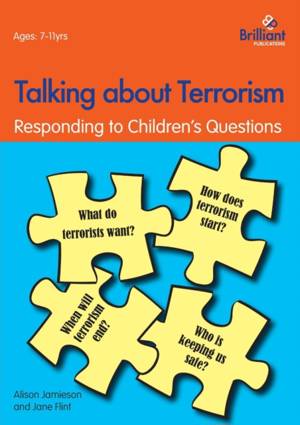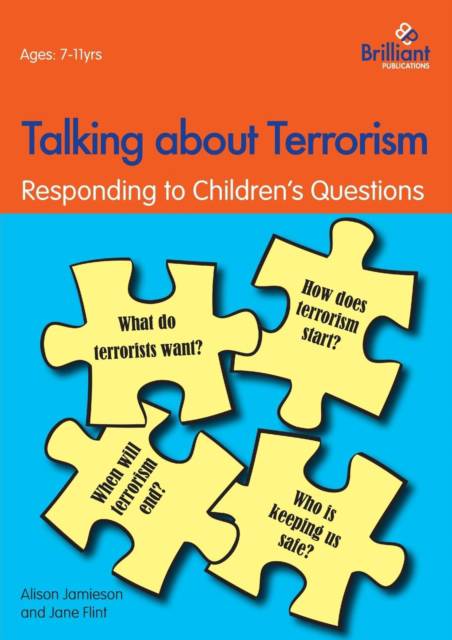
- Afhalen na 1 uur in een winkel met voorraad
- Gratis thuislevering in België vanaf € 30
- Ruim aanbod met 7 miljoen producten
- Afhalen na 1 uur in een winkel met voorraad
- Gratis thuislevering in België vanaf € 30
- Ruim aanbod met 7 miljoen producten
Talking about Terrorism
Responding to Children's Questions
Alison Jamieson, Jane FlintOmschrijving
Children's questions about terrorism can be penetrating and hard to answer. Many teachers (and parents) will be caught unawares by such questions, uncertain themselves about terrorist motivation and goals and torn between the natural instinct to reassure and the awareness that Britain is on continuous terrorist alert.
Talking about Terrorism is structured around 40 questions that children may ask - What do terrorists want? How can we stop someone becoming a terrorist? Who is keeping us safe in Britain? Why are terrorists so angry and full of hate? When will terrorism end? - and answers the questions in clear, easy-to-understand language. The authors provide simple, objective explanations and try where possible to reassure, while being careful not to raise unrealistic expectations.
As Peter Wanless, Chief Executive of the NSPCC, points out in the Foreword to the book:
"If we are to reassure our young people, encourage their tolerance of others, and prevent them from being groomed into acts that could hurt themselves or others, we must talk with them and educate them. This book sets out to help teachers do just that. ... it is impossible to shield children from the reality of terrorist attacks. But, with open conversation and clear explanations, we can help them feel safe and know that the world is still a good place."
The text is interspersed with activities that Lower and Upper Key Stage 2 teachers can use to stimulate critical thinking and encourage creative investigation of key themes. These range from discussions and debates, the use of circle time and hot-seating through to role-play, poetry and music composition, singing and artwork.
Despite the focus on terrorism the authors never lose sight of a core belief in human goodness. They make it a priority to focus on positive actions that children can perform, singly or collectively, to make the world more peaceful. Each section has inspiring stories of peacemaking and reconciliation, about the power of love over hate, of non-violence over violence and the importance of tolerance and respect.
As Iona Lawrence, Director of the Jo Cox Foundation, says in an introductory message to the book:
"Jo [Cox] really did live by the conviction that we have 'more in common than that which divides us.' As this book also shows, it is this phrase that can and should guide conversations with children about extremism in all its forms."
Specificaties
Betrokkenen
- Auteur(s):
- Uitgeverij:
Inhoud
- Aantal bladzijden:
- 116
- Taal:
- Engels
Eigenschappen
- Productcode (EAN):
- 9781783172788
- Verschijningsdatum:
- 5/05/2017
- Uitvoering:
- Paperback
- Formaat:
- Trade paperback (VS)
- Afmetingen:
- 210 mm x 297 mm
- Gewicht:
- 299 g

Alleen bij Standaard Boekhandel
Beoordelingen
We publiceren alleen reviews die voldoen aan de voorwaarden voor reviews. Bekijk onze voorwaarden voor reviews.











